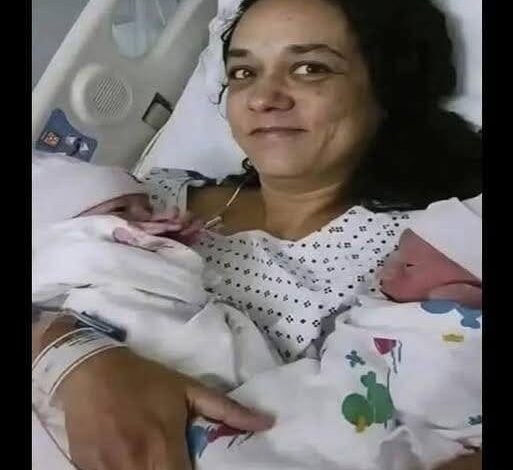I Was Baking Pies for Hospice Patients, Then One Arrived for Me, and I Nearly Passed Out

Grief drove me into the kitchen before I even understood why. I didn’t plan to become the girl who baked pies for strangers — I just needed something to do with my hands so my heart wouldn’t fall apart.
The night that changed everything was one of those bitter January nights when frost laced the windows and silence felt safe. I was sixteen, lying in bed pretending to care about homework, while my parents laughed at some late-night show downstairs. Then came the smell — sharp, metallic, wrong. The alarm screamed. My dad burst through my door, wordless, grabbed my arm, and pulled me into the freezing night. He turned back for my mom and my grandfather. They never made it out.
An electrical fire, they said. The kitchen — the same place where birthdays and Sunday breakfasts had happened — became the grave of my family. The fire didn’t just take them. It erased everything: photos, furniture, the small ceramic horse my mom gave me when I was ten. All that remained was me, barefoot in the snow.
A youth shelter gave me a bunk bed, a locker, and a roof that didn’t leak. My aunt Denise — my mother’s sister and the only relative left — called once to tell me she “had no space” for me because my uncle needed the spare room for his office. Still, she somehow found room in her life for half of the insurance payout, promising to use it for “therapy and new clothes.” She bought a wine fridge, a car, and a stack of designer hats for her “grieving wardrobe.” I said nothing. Grief had turned me quiet, and silence looked a lot like obedience.
Days, I studied like survival depended on it. Nights, I took over the shelter kitchen. I learned how butter softened when it was ready, how to feel the right weight of flour without a scale. Apple, cherry, blueberry, rhubarb — whatever I could afford with coupons and leftover change. Sometimes I made ten pies, sometimes twenty. I boxed them neatly and carried them through the cold to the homeless shelter and hospice center downtown. I never signed my name or stayed to watch people eat. It was easier to love anonymously.
My aunt called once to scold me. “You’re wasting money,” she said. “Those people don’t even know who you are. You should be helping family.” Family. The word tasted sour. I hung up and went back to kneading.
Two weeks after my eighteenth birthday, the receptionist at the shelter handed me a package. My name was written in delicate cursive. Inside was a pecan pie — perfectly golden, dusted with powdered sugar. When I sliced into it, the knife hit something hard. A small plastic sleeve. Inside it, a note:
“To the young woman with the kind heart and golden hands,
Your pies made my final months full of warmth and love.
I never saw your face, but I felt your soul.
I have no family left.
I want to leave my home and blessings to someone who knows what love tastes like.
— M.”
I sat on the floor, staring at the note, unable to move. Three days later, a lawyer named Paul called. “Margaret Hendley passed away last week,” he said. “You’re her sole beneficiary.”
I laughed, thinking it was a mistake. He continued calmly, listing it off: her home, her car, her belongings, and a trust her late husband left untouched for twenty years — now worth over five million dollars.
“She didn’t even know me,” I whispered.
“She did,” he said. “A nurse recognized your red coat with the missing button. Margaret asked about you. She was blind by the end, but she made the staff describe your pies. She said, ‘Whoever that girl is, she’s grieving — but she still knows how to love.’”
When my aunt found out, she demanded a share, claiming she “raised” me. I blocked her number and didn’t look back.
Now, I live in Margaret’s house — a quiet place filled with old books, cedar floors, and a greenhouse built by her husband. I haven’t touched most of the money. It’s not what matters. What matters is her kitchen, her rolling pin, her note above the oven that says, “The best ingredient is time.”
I still bake for the hospice and the shelters. I leave each box with a small card that says, “Baked with love — from someone who’s been where you are.”
Grief once convinced me love was over. But love, I learned, doesn’t die. It just changes shape — sometimes into a pie left on a doorstep, sometimes into a stranger’s kindness that saves your life.